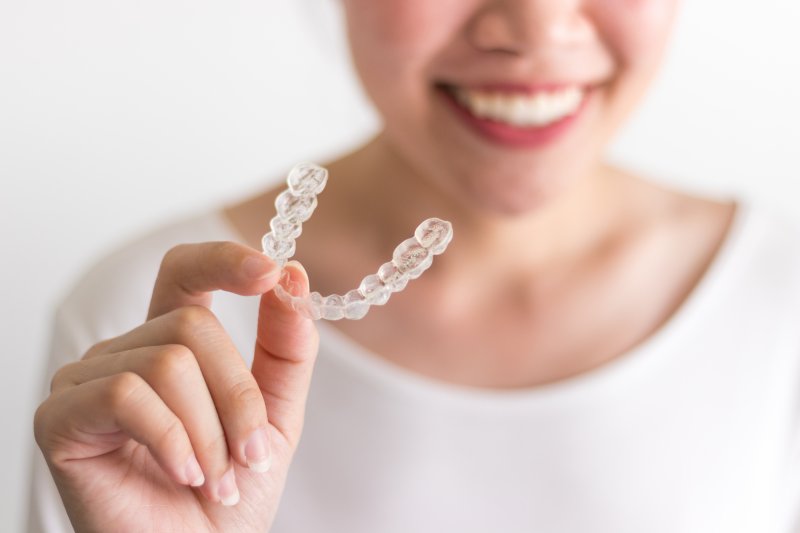
Bruxism is the involuntary grinding or clenching of teeth, typically during sleep. Stress, anxiety, and sleep disorders, can contribute to this condition. The same goes for misaligned teeth, so you may be wondering if undergoing orthodontic treatment could help. Bruxism can lead to dental problems and discomfort. If you’re considering Invisalign for bruxism, read on to explore its potential benefits in managing this condition.
Why Is Bruxism a Concern?
Bruxism is a condition characterized by the repetitive grinding and clenching of teeth, resulting in potential dental issues such as tooth wear, fractures, jaw pain, headaches, and damage to teeth, gums, and jaw joints. The significant force applied to the teeth also increases the risk of dental damage.
Bruxism often goes unnoticed as it frequently happens during sleep, worsening the condition. Nighttime teeth grinding can result in jaw and neck discomfort, as well as tension headaches. Unexplained dental damage may indicate sleep bruxism. Seeking timely treatment and care from a dentist or healthcare professional is crucial if bruxism is suspected.
Can I Get Invisalign If I’m Dealing with Bruxism?
In managing bruxism, Invisalign treatment provides advantages by correcting teeth misalignment. Misaligned teeth are often linked to teeth grinding, and Invisalign’s corrective approach helps alleviate bruxism symptoms by reducing the amount of strain put on the jaw muscles.
Improper teeth alignment can lead to temporomandibular joint (TMJ) irritation, causing teeth grinding, discomfort, headaches, and related problems. Invisalign treatment provides a solution as the aligners are worn overnight, acting as a protective barrier against bruxism. By aligning the teeth, Invisalign reduces stress on the jaw muscles, effectively minimizing teeth grinding and its associated complications.
What You Should Know About Invisalign with Bruxism
Patients with bruxism should be aware that their Invisalign aligners may experience faster wear compared to those without the condition. It is essential to inform your orthodontist about your bruxism before starting the treatment to ensure proper care and adjustments are made.
Although Invisalign aligners provide some protection against bruxism, it is crucial to consult your orthodontist to assess if additional measures are necessary for effective management. This may involve the use of a night guard or other protective devices to further safeguard your teeth and jaw.
In summary, Invisalign treatment offers significant benefits in managing bruxism by correcting teeth misalignment and relieving strain on the jaw muscles. By addressing the root cause of bruxism, Invisalign can effectively alleviate symptoms and promote optimal oral health.
About the Practice
Healthy Smiles Dental Care of Muskegon, led by Dr. Steven Rodriguez, Dr. Jeffrey Sevener, Dr. David Ludkin, and Dr. Samuel Spraggins, offers exceptional dental care. Their comprehensive treatments cover restorative, preventive, and cosmetic procedures to enhance oral health and aesthetics. They specialize in providing Invisalign as an effective alternative to traditional braces, helping patients achieve straighter teeth and beautiful smiles. To schedule an appointment or learn more about Invisalign and bruxism, contact Healthy Smiles Dental Care of Muskegon at (231) 563-6878 or visit their website.
